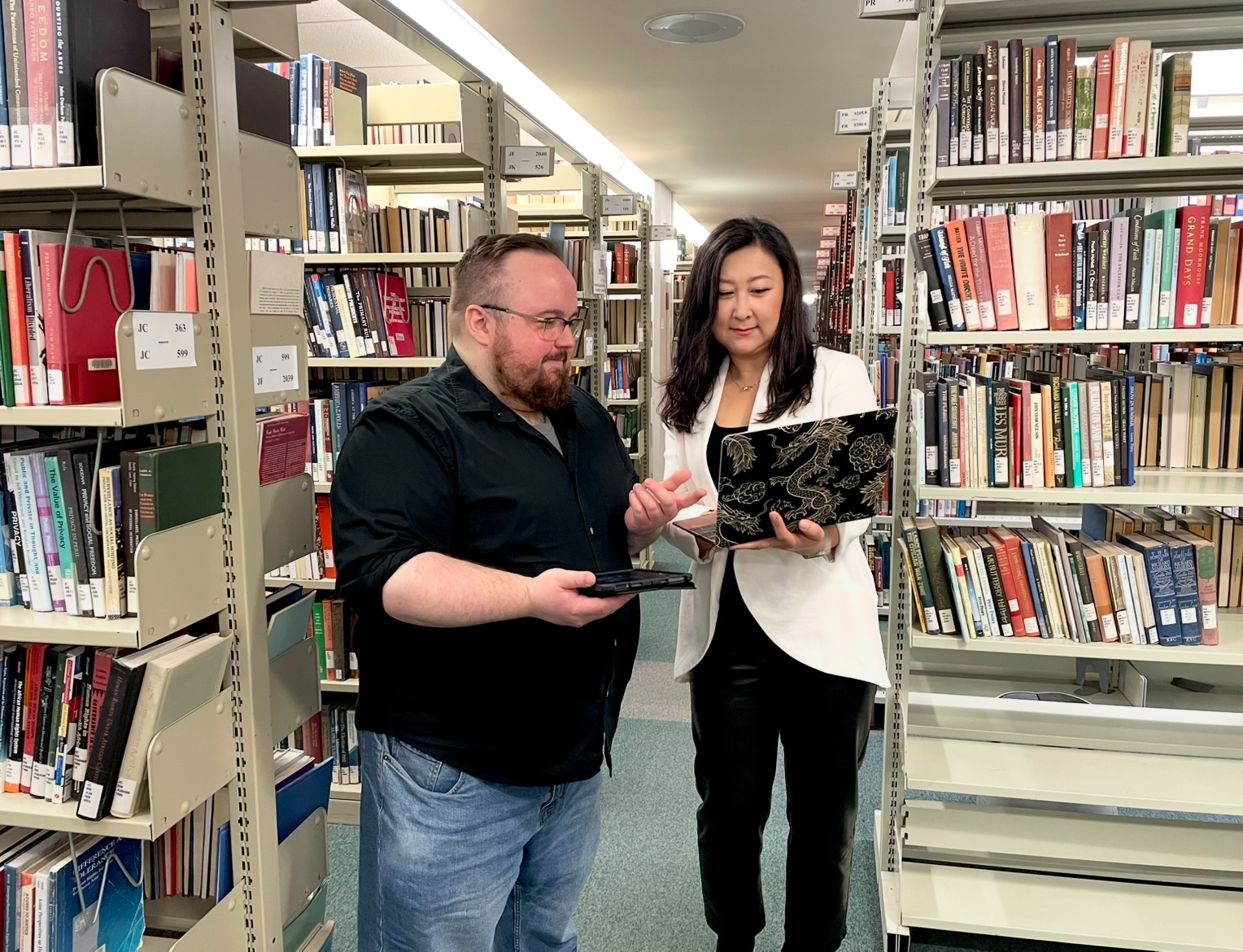
McMaster University Libraries is making it easier for researchers to access materials offered in its collection with LibKey, a suite of tools now available to the McMaster community.
The LibKey collection includes libkey.io, LibKey Discovery, LibKey Link, LibKey Nomad and BrowZine.
Wei Zhang, e-resources and collection analysis librarian at McMaster University Libraries, says the new tools will help to improve the overall research process for users.
“LibKey is meant to streamline off-campus and on-campus access to full text with as few clicks as possible,” she said. “The lessened clicks will save the researchers so much time in trying to get to the final destination of retrieving that full text.”
While some tools within LibKey are integrated into the university libraries’ Omni search tool, others require user engagement.
LibKey Nomad is a browser extension that unlocks paywalled content on Google Scholar, Wikipedia, publisher websites and more, providing seamless access to scholarly resources available through McMaster University Libraries. It automatically notifies users when an article is available in the McMaster catalogue, enabling one-click access to full-text. This tool requires users to install the browser extension to utilize its benefits.
Cameron Wheaton, collection strategy librarian, social sciences and humanities at McMaster University Libraries, says that LibKey Nomad can be particularly helpful for novice researchers, such as undergraduate students.
“The Nomad tool can be really beneficial when it comes to connecting them with resources at starting points in their research,” he said. “For example, in Wikipedia, you will see ‘provided by McMaster University’ pop up from the Nomad extension. If you select it, it takes you down to all of the references and provides you individual personalized links with what you can access through McMaster and how you can access it based on what was cited on the page.”
If a resource is not available through McMaster but is recognized by the LibKey Nomad system, it will direct the user to Omni where they can request the resource through interlibrary loan.
A second tool available through LibKey that can be helpful for researchers is BrowZine, which allows users to create a personalized collection of journals and articles. BrowZine can be accessed through a web browser or an app and gives users the option to download materials onto their device.
Wheaton says users will benefit from creating a BrowZine account because of the customization features available.
“BrowZine allows users to create themed bookshelves with the journal publications that they would most want to read or be keeping on top of,” he said. “They can also go into My Articles and add articles available from a ton of different journals that's not limited to any one publication.”
With BrowZine, users can sign up for email notifications when new issues of the journal articles they follow have been published to stay up to date on the latest content. This feature helps provide instant access for busy researchers wherever they are, to whatever content they choose to subscribe.
LibKey was first implemented by the university libraries in September 2024 at the suggestion of faculty members and users of the Health Sciences Library. After a trial period and time spent creating a helpful LibGuide so that users know how to utilize the tools, the university libraries are now encouraging the McMaster community to take advantage of LibKey’s many benefits.
The team acknowledges the essential contributions of Stephanie Sanger, clinical services librarian at Health Sciences Library, who helped make the project a reality.
To learn more about the tools available through LibKey, visit McMaster’s LibKey LibGuide.
